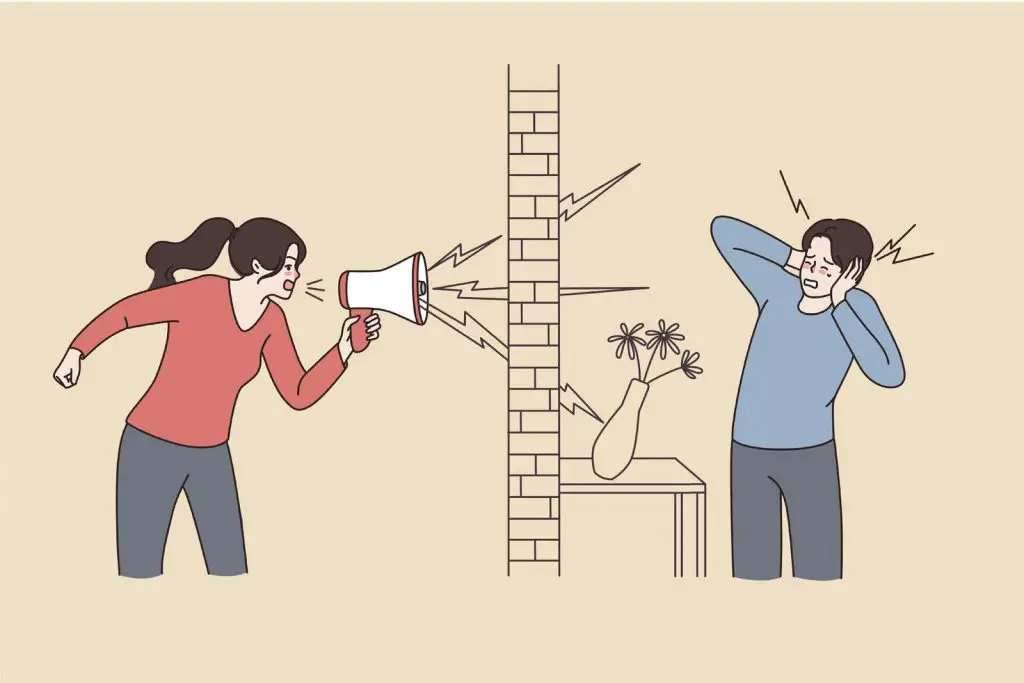If you think being a landlord is just a matter of buying a house, renting it out, sitting back and letting the rental income roll in, you might be surprised to learn there’s a lot more to it. In fact, there is sometimes so much to do it can feel like a full-time job! So as a property investor and landlord I bet you’re wondering if we think that being a landlord is still worth it?
Being a landlord is a great way to make some extra money and provide a steady stream of income but it is not a viable option for everyone. Novice landlords should be certain they can afford the upfront and ongoing costs involved in managing a property.
Being a landlord is not easy, there are challenges, and it’s often a journey of education and experience. However, if you have the means and time to invest, it can also be very liberating and rewarding.
The Rise of the Property Investing TV Programmes!
The TV programmes that have become popular make it look easy to become and landlord. It also looks like a very glamorous way to make a living. It certainly isn’t a get rich quick scheme, however, it could be a get rich slowly scheme – if you know what you’re doing! This is why educating yourself is very important!
To be honest it was the TV programmes that inspired me to take action but I became educated before I jumped in. Homes under the Hammer was a popular show and probably still is. Sarah Beeny’s had more shows than I’ve had hot dinners including Property Ladder! In fact, Sarah Beeny and Martin Roberts from Homes Under the Hammer have both been experts on our site. Property Ladder made everyone look like experts as it was filmed during a booming market. It’s not so easy to make money when the market is on a downturn.
Anyone can be a property investor but in order to not lose out big time, it’s important to do your research first.
Being a landlord doesn’t mean you’ll get rich quickly
You shouldn’t become a landlord if you expect it to return a lot of cash very quickly. Property investment is a long-term game that starts with finding the right property, in the right location, for the right price.
Like the stocks and shares market, the property market experiences growth and contraction. During a boom, the market may be worth more than when you purchased a property, but on the flip side, if the market crashes, it can be difficult to get out of negative equity. The good thing about bricks and mortar is that the property values always eventually go up, even in bad areas the prices will increase if you can wait long enough!
As with any investment, before you get any money out you have to put money in. Here are some of the costs you’ll need to cover before taking any rent:
- Cost of the property
- Legal fees for completing the purchase
- Renovation costs
- Cost of creating a rental agreement
- Advertising costs when you’re ready for tenants
- Agency fees if you are going to use an agent to get a tenant
- Insurance costs
You’ll be paying out a lot of cash before any of it comes back to you, so it is vital you don’t rush into this. Do your research on property investment, speak to experts, understand the market trends in the area you’re looking to purchase a property, remember the saying “Failure to prepare is preparing to fail!”.
Once you’ve passed the first set of hurdles you’ll then have the ongoing costs of general maintenance, agents (if you’ve chosen to outsource tenant management) and the monthly mortgage payment. Remember to calculate these things into your net yield calculation before you purchase a property.
When you’re getting started in property, it’s going to pretty impossible to get rich quick from property, unless you bag an amazing deal straight away. Initially, with buy to let, it’s a slow and steady way to build up a residual income with some potential capital growth.
What you should know before becoming a landlord
As a landlord, you are responsible for the upkeep and maintenance of the property. Here are some elements to consider:
- Have a good security system in place. This benefits both the tenants, and you, should the property sit empty.
- Have a good cleaning service you can call to take care of the property between tenants.
- Find reliable tradespeople you can be sure will do a good job if any maintenance work is required.
- Don’t just take anyone as a tenant, a good tenant will take care of the property and keep it in good shape.
That final point is a lot more important than you might expect. My ideal tenant looks after the property, gets on with the neighbours (or at minimum, doesn’t cause any issues with them), pays the rent promptly and provides the correct notice when leaving.

In the rental market, this sort of perfect tenant makes your life a lot easier.
On the flip side, getting in someone who is the opposite of this will leave you chasing for payment, having to repair damaged property, having to deal with local complaints and potentially having to go down a legal route to remove them from the site.
Landlord Laws
The law really seems to be on the tenant’s side. If you are a good landlord and have a bad tenant like our experience above then you are in a very bad position! Some bad tenants know how to play the system, as a landlord sometimes you don’t have a leg to stand on!
So it’s important to understand the laws and know how to get a bad tenant out of your property. Our expert Paul Shamplina from Landlord Action was very helpful to us when we needed some advice about tenant eviction.
Key steps to becoming a landlord
If you’re ready to start your property investment journey these are the key steps to take:
Plan your strategy
When we started out in property if we’d have had a very clear strategy from the outset, we would have moved forward far quicker than we did.
It’s important to think about what you want to achieve with property investing. Spend a couple of hours thinking about your goals.
Ask yourself a few questions:
- Are you looking for cash-flow each month?
- Are you looking for capital gains?
- Are you going to buy and hold?
- Are you going to buy and sell?
- How much income do you want from property investing?
Most people want a combination of capital growth and rental income from a buy-to-let property.
Strategy Options
There are many different strategies that you can implement to start your property investing career. We have listed each one briefly.
- HMO (Houses in multiple occupation) or Multi Lets
- Buy to let
- Lease Options
- BMV – Below Market Value
- Renovation and refurbishment
- Flipping Deals
- Buying at Auction
Strategy is really important, but as Winston Churchill said “However beautiful the strategy, you should occasionally look at the results”.
Once you’ve decided on your strategy you can start to research the market. For beginners, we advise that the best strategy is to stick to a simple buy to let investment.
Research the market
Before visiting any houses be sure to research the real estate market in the area you’d like to invest in. This is called doing your due diligence!
You should become familiar with:
- Property values: Helps you identify good investment opportunities;
- Historic purchase prices: Allows you to see if prices are increasing or decreasing;
- Monthly rent: Helps you identify how much people are willing to pay in that area;
- Local facilities: Helps you identify what services or amenities are available nearby;
- Neighbourhood demographics: Helps you identify potential problems in the neighbourhood such as crime rates, school ratings and other factors that may affect the value of your property.
You can do a lot of this research online, but you can also contact estate agents and letting agents who will often provide you with useful information about the area and properties available.
Do your Due Diligence
They will also know the market and if there is high demand for properties, but keep in mind one of the key sales tactics in any business is to create the illusion of demand, “buy now or miss out!”.
It’s really important to not be misled by an agent saying that you are in competition with other investors for a particular property. This is definitely a sales tactic. If you miss out on that property there will always be another one! Don’t get too emotional about it!
It’s imperative to do your due diligence thoroughly on a property deal. Due diligence simply means that you check out the investment thoroughly.
The key to successful buy to let investing is to purchase a property in a location where there is strong rental demand and the rent “Stacks up”.
This means that the rent is enough to cover all of the costs and still leaves a profit for you at the end of each month. It needs to leave you with a positive cash flow after all the expenses and it, therefore, gives you a good return on investment.
Location, location, location
Remember location, location, location. I would recommend that you always go and view the property before you purchase. We made the mistake of not seeing a property before we purchased it once. We were purchasing a 2 bedroom property and we were unable to view it as they wouldn’t allow us to disturb the tenant. When the sale went through, the tenant moved out 3 months later, we went to see the property only to discover it was actually a 1 bedroom property!
This is a mistake that we will never make again. We had obviously done our due diligence on a 2 bedroom property and the figures looked quite different on a 1 bedroom property.
When doing your due diligence it is safer to work with the net yield, as this gives you a truer picture as to what will end up in your pocket at the end of the month.
Gross Yield = annual rent/purchase price
Net Yield = annual rent less running costs/purchase price
Make sure that you’re not paying too much for the property. Check out the sold prices in the area on Right Move. Call up the local rental and sales agents to check the figures.
Never be afraid to walk away from a deal. If at first it seems like the deal of the century but after due diligence, it turns out not to be so good, just walk away. They’ll always be another deal around the corner.
Analysis is Paralysis
Of course, the opposite of jumping in before you’ve planned your strategy is to not do anything at all. It’s very important to analyse deals and properties before you buy, but don’t let that stop you from doing anything and taking action. It’s called over-analysis leads to paralysis.
It’s extremely important to check out the property and to do your due diligence but don’t do so much due diligence that you don’t make a decision to move forward.
To do nothing is to fail before you’ve even started. We all make mistakes but it’s from these mistakes that we learn.
“It’s in your moments of decision that your destiny is shaped” Tony Robbins
Once you have a feel for the housing market it’s time to move on to the fun part of finding somewhere to buy.
Find a Property
At this stage, you should be very familiar with the area you’re looking to invest in, and you’ve likely bookmarked some potential properties to view.
Make sure that you know what you are looking for, what size, price range and general condition are you looking to buy?
If you haven’t already, make contact with the local estate agents, let them know what you’re looking for, and they will do a lot of the hard work for you.
When you’ve got some options be sure to visit properties in person. Assess the condition, the work required to make it rental ready, and get a feel for the local area.
Remember, while this isn’t going to be the house you live in, you should ensure it is attractive to potential tenants. The nicer the house and area, the higher the monthly income. It’s so important to not get emotional about the rental property that you’re going to buy. Remember you aren’t going to be living there yourself, it isn’t your home.
If you’ve seen an existing rental property you really like why not contact the existing owners? Not everyone buys to let. There are a lot of tenants living with the owner, who, for example, may have inherited the property from their parents and would consider selling.
Preparing the Property
A good property manager will understand an investment property will likely need renovation work before it’s ready for the rental market. At the very least, it should have a top to bottom paint job, but may require a new bathroom and kitchen.

You’ll also need to decide if you wish to offer a fully furnished property or an empty one.
Any renovation and modernisation work will ultimately result in extra cash for you in the long run. A nice house can demand higher rental rates, and in the long run the value of the house will be increased as well, meaning you can make a tidy profit when you eventually sell it to the next property owner.
One option is to hire a property management company, which is an additional cost but is ideal if you don’t have the time or experience to deal with maintenance issues quickly, or if you have multiple rental properties that require overseeing.
Finding Tenants
An empty property is a money pit, so make sure to start working on finding tenants towards the end of any renovations so they can move in ASAP.
While the Internet provides an inexpensive to place advert you should consider signing up with a local estate agent who will find and vet tenants for you, as well as arrange to take a security deposit and set up rental payment.
To be honest we always sign up with a local letting agent to find a tenant for us. We want to make sure we get the best tenant that we can into the property. As you have read we did have a nightmare tenant and we don’t want to repeat this. We also want to make sure that all the legal rules are followed when a new tenant moves in.
Some estate/letting agents will show potential tenants around the property as part of the letting advertisement service.
They will also do a background check, collect references and check the applicant’s credit rating.
You should also let friends and family know you have a property available, they can share with their social network and can likely vouch for any interested applicant.
Keep in mind that if you decide to vet tenants yourself, you will need to conduct credit and background checks as well as arrange for the security deposit and rental agreements to be signed yourself.
Responsible tenants pay their rent on time, don’t abuse the property, and don’t require you to engage in the costly and time-consuming eviction process so making sure you vet applicants is very important, as is making sure your lease agreement includes provisions for dealing with damage, and unpaid rent.
Once you are all set up and have tenants in, the day-to-day management is generally fairly easy.
Provided you are following all the required regulations, have a good tenant and your property is safe and well maintained, your involvement will mainly be needed when a problem arises or when someone moves our, and a new tenant is required.
Many landlords hire an agent to manage the day to day running of their properties, giving them even more free time.
We used to have an agent manage all of our properties, but we decided to move away from this model and manage the properties ourselves. They were charging us 10% of the monthly rent and a lot of the time they weren’t doing anything. If there was a problem with the property they would just phone us anyway.
So we decided to move away from agents and manage all the properties ourselves. Of course, when the property is far away this could prove difficult. So, I decided to speak to an agent and I put forward a proposal. I wouldn’t pay any monthly management fee but if I needed them to do something I would pay per job. This has worked really well. I’ve always got someone to contact locally but I’m not paying on a monthly basis.
Hassles of being a landlord
For the most part you shouldn’t have too much to do on a day-to-day basis, but of course issues always crop up. I’ve had to deal with lots of different issues, including:
- Broken pipes
- Stuffed drains
- Broken garage door springs
- Damage to appliances
- Worn out floors and carpets
- Chasing rental payments
The list goes on, and it all needs to be dealt with. Unfortunately, this can lead to disputes and costly repairs, which is why good tenants are worth their weight in gold.
As a guide, have a refurbishment pot of £2500 saved for use over several years. Rented residential properties frequently need repairs, replacement, decoration and, at some stage, refurbishment.
It’s also wise to have money in reserve to cover periods the property is empty (e.g. to cover mortgage payments and council tax).
You must also take out landlord insurance, which will help protect you from losses due to property damage or theft. If you have multiple properties, it may be a good idea to consider portfolio insurance instead of individual property insurance. We’d recommend speaking to Jon Mason, from Aon Insurance. He’s our insurance broker.
Jon moved us from individual insurance premiums to a portfolio insurance policy. This has worked really well and has made it much simpler for us to keep control of our insurance for the properties.
Landlord profits and costs
Like any business, landlords have monthly costs they have to cover before they make a profit, and these vary depending on the location.
The expenses you’ll incur include mortgage payments, returning tenant deposits, maintenance, agency fees and other associated costs.
As time goes on you will also need to cover the cost of replacing appliances, furniture, and landscaping.
It is important to budget for these costs when calculating your rental price and keep reviewing these costs each year as they will vary as time goes on.
Anything made above expenses is your profit, but keep in mind some of this should be retained for emergencies and future investments.
According to cia-landlords.co.uk, Brighton is the most profitable city to become a landlord, with landlords making an average of £571.85 per month profit.
Bangor, Portsmouth and Leeds follow with £500.53, £479.27, £477.60 monthly profit per month respectively.
If you find you are living comfortably and have a growing savings pot, I recommend speaking to a financial planner who can assist you in making your money work harder.
Do you need money to become a landlord?
We feel this is really important as some experts can lead you to believe that you don’t actually need any money to buy property. If you don’t have cash available in case anything goes wrong, you can fall into some serious issues.
Some of the larger expenses you can manage by having contracts on the boilers and controls with a company like British Gas. At least if anything goes wrong with the boiler you can mitigate the risk.
Cash-flow is king!
However, properties are expensive things and anything can go wrong with them at any time. Remember, cash flow is king! If you don’t have the cash available how are you going to pay for maintenance or voids?
Many landlords underestimate how much they will need to spend on maintenance — about 10 percent of your rental income should be put aside for this.
Even with a lease option where you don’t have to raise finance to buy the property, you need funds available for maintenance. You will also need liquid cash for any void periods that you have.
Of course, you now have to pay the council tax yourself if you have a void, so this needs to be taken into account as well.
Is it worth being a landlord?
If the above hasn’t put you off then I can say from personal experience that investing in property and becoming a landlord has been one of the best decisions of my life. It’s given me the financial freedom to live the life I want to lead. For me it’s allowed me to work from home around my 2 daughters!
Is it hard work/scary/draining? Yes, sometimes it is, but once you have and established positive cash flow, you can consider investing in another suitable property, build up your portfolio, create multiple sources of income and ultimately quit the day job.


